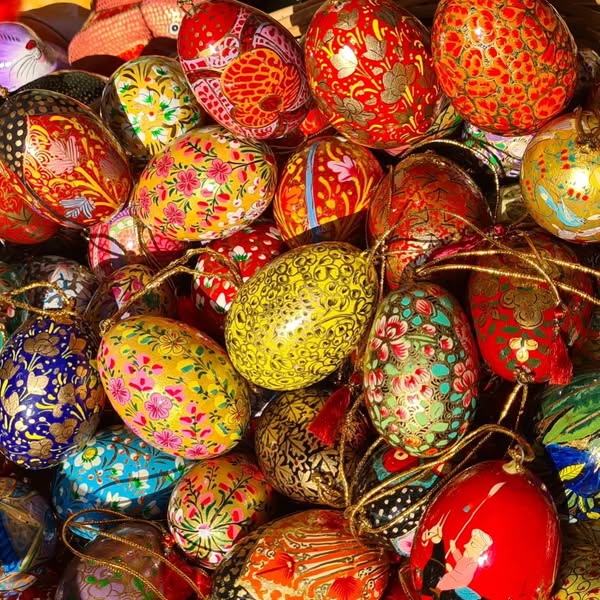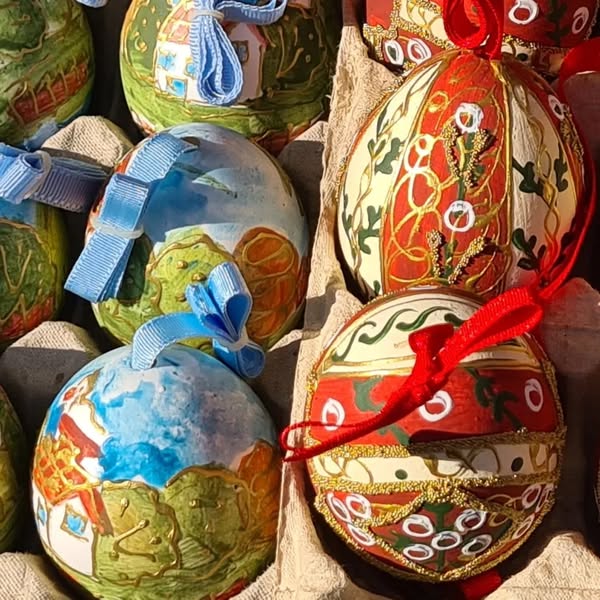Some background information, in case you’ve got guests that celebrate Esater at your hotel.
The tradition of Easter eggs predates the Christian holiday of Easter and has roots in various cultural and religious practices. The egg has been a symbol of fertility, rebirth, and new life in many cultures throughout history.
In ancient times, many cultures, including the Egyptians, Persians, and Greeks, exchanged eggs as gifts during spring festivals to celebrate the arrival of spring and the renewal of life. These eggs were often decorated in vibrant colors to represent the colors of spring and were seen as symbols of fertility and new beginnings.
In Christian tradition, the egg became associated with Easter as a symbol of Jesus Christ’s resurrection and the promise of new life. Early Christians adopted many pre-existing cultural practices and symbols, including the egg, and infused them with new meanings to align with Christian beliefs.
One common legend is that Mary Magdalene brought cooked eggs to share with other women at the tomb of Jesus, and when they saw the resurrected Christ, the eggs turned bright red. This legend helped cement the egg as a symbol of Christ’s resurrection and new life.
Over time, the tradition of decorating eggs for Easter evolved, with intricate designs and patterns becoming popular. Today, Easter eggs are often made from chocolate or candy and are exchanged as gifts or used in Easter egg hunts, but the symbolism of new life and rebirth remains central to the tradition.
################
################

Easter’s date changes from year to year.
Easter is celebrated on the first Sunday after the first full moon occurring on or after the vernal equinox. This means that Easter can fall on any Sunday between March 22nd and April 25th. This method of determining the date of Easter is based on the lunar calendar, which is why it varies each year.

The reason for this dating system goes back to early Christian traditions and aligns with the timing of the Jewish holiday of Passover, which is connected to the events surrounding Jesus‘ crucifixion and resurrection. So, while Easter doesn’t have a fixed date, it always falls within a certain range of dates in the spring season.
################
################

Easter Sunday is a significant holiday in Catholic countries because it commemorates the resurrection of Jesus Christ from the dead, as described in the New Testament of the Bible. The resurrection of Jesus is considered the cornerstone of the Christian faith, as it represents victory over sin and death.
For Catholics, Easter Sunday marks the culmination of Holy Week, which begins with Palm Sunday and includes events such as Maundy Thursday (the Last Supper) and Good Friday (the crucifixion of Jesus). Easter Sunday itself is celebrated with great joy and reverence, as it represents the fulfillment of Jesus‘ promise of salvation and eternal life for believers.
In Catholic countries, Easter Sunday is typically observed with special church services, including the Easter Vigil on Holy Saturday night and Masses on Easter Sunday morning. It is also a time for family gatherings, feasting, and various cultural traditions such as Easter egg hunts and the decoration of Easter eggs and baskets.
Overall, Easter Sunday holds profound spiritual significance for Catholics as it commemorates the central event of their faith—the resurrection of Jesus Christ.